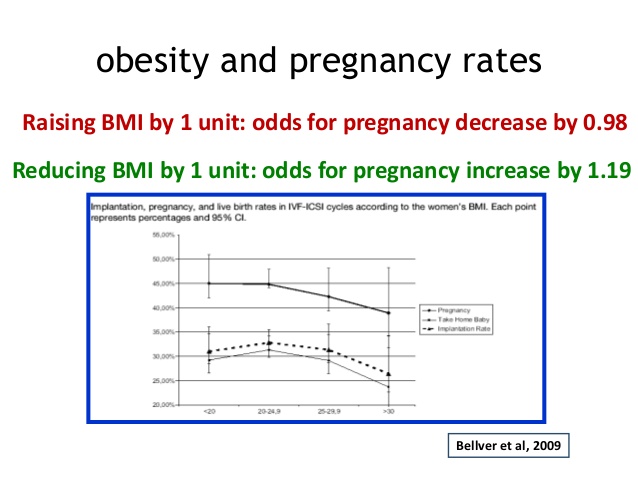How to Get Pregnant with Donor Sperm #2: Making Changes for a Healthy Lifestyle
Understand why living a healthy lifestyle is so important to conceiving a child with donor sperm

Welcome to part 2 of the 3-part series for How to Get Pregnant with Donor Sperm. In part 1 we covered preconception exams which included, identifying factors that might affect your pregnancy, and how to increase your chances of a healthy pregnancy and healthy baby. If you missed part 1, view it here!
As we dive into part 2, we will be discussing the importance of living a healthy lifestyle when trying to get pregnant with donor sperm. With the help of Kate Wisda, Pacific Reproductive Services RN, we will review the importance of a healthy BMI and other healthy practices to maximize fertility and minimize risk during pregnancy.
Weight
Maintaining a proper weight with a healthy diet and active lifestyle is important to both maximize your fertility and minimize risk in pregnancy.

Am I at a healthy weight?
Being under or over a healthy weight can significantly decrease your chances of getting pregnant. Achieving a healthy weight can assist in minimizing certain prenatal risks. Discuss risk and lifestyle changes (specifics of diet and exercise) with your provider.
Body Mass Index (BMI):
Screening tool that combines a person’s height and weight to determine if they fall into a healthy range. Try this BMI calculator
Make use of the BMI chart to determine if your weight is healthy.

Body Fat Percentage (BFP)
Women who are exceptionally fit or those with underweight BMI may also want to consider checking their BFP. Maintaining a healthy BFP can help maintain fertility.
Our body’s fat, or adipose tissue, contains numerous cells that produce, regulate, and process hormones- including sex hormones like estrogen that play an important role in infertility.
Too little or too much body fat can disrupt your body’s natural production of sex hormones. Hormone irregularities can cause ovulation irregularities.
Ask your medical provider about how to determine your percentage or check out this link.
Underweight
Being underweight (BMI 18.5 or less) or having an extra low body fat percentage (<17%) can cause your body to make less estrogen. This can cause irregularity in menstrual cycles and you may stop ovulating and getting your period.
To get pregnant, you need adequate estrogen to ovulate (or release an egg from the ovary) so it can be fertilized by sperm. Your body then needs elevated levels of estrogen to be able to support a developing baby in the womb.
Overweight
Our ovaries create estrogen, and as we learned above, our body’s fat, or adipose tissue, also makes estrogen. As we gain weight, our fat cells grow and release more estrogen. Too much natural estrogen can prevent you from ovulating and/or having a monthly period.
Underweight during pregnancy increases risk of:
- Low birth weight
- Preterm birth
- Problems during delivery
- Difficulty gaining adequate pregnancy weight
Overweight during pregnancy increases risk of:
- High Blood Pressure
- Gestational Diabetes
- Preeclampsia
- Preterm birth
Obesity during pregnancy increases risk of:
- Macrosomia (large for gestational age)
- Birth Injury
- Birth defects- heart defects and neural tube defects (brain and spinal cord)
- Cesarean birth
For more information on weight and pregnancy visit our past blog post, A Quick Guide to Weight & Pregnancy.
Unhealthy Substances to Avoid When Trying to Conceive
Avoid these substances when you are trying to conceive to avoid risks like still birth, low birth weight, and preterm birth.
- Marijuana: Linked to increased risk of stillbirth and low birth weight and attention and behavioral problems in children
- Opioids: Increased risk of preterm delivery, stillbirth, poor growth of fetus and placenta
- Smoking/Tobacco: Low birth weight, preterm birth, and SIDS after pregnancy
- Alcohol: Stop or drastically minimize
- Caffeine: Lower your intake to less than 200mg/day, which is not currently linked to increased risk
Keep your home safe from these substances:
Try to prevent bringing these substances into your home to avoid any pregnancy defects like blindness, hearing loss, and intellectual disabilities.
- Lead
- Mercury
- Fertilizer
- Pesticide Solvents
- Radiation
- Insect
- Cat or Rodent Feces
Dangers to Avoid in the Workplace
Some jobs, like those that expose you to chemicals or are physically difficult or dangerous, maybe risky before and during your pregnancy. Talk to your workplace about possible accommodations while you are pregnant.
Stay tuned for part 3 of How to Get Pregnant with Donor Sperm –Picking Your Sperm Donor by signing up to get alerts whenever a blog has been posted.

Resources
1) https://www.womenshealth.gov More than typical .gov site. This is one of my favorite resources for patients, as it is very easy to read and there are some great tools ie. Ovulation calculator, healthy diet plans, etc. You can find videos, webinars, A-Z indexes, and more.
2) https://www.acog.org/ This is the do-all end-all for women’s health. ACOG defines the best practice for OB/GYN’s. Not always easy to read but very thorough.
3) www.cdc.gov/treatingfortwo Like womenshealth.gov with the multimedia tools (videos, podcasts, A-Z index, etc.). Some info is basic, some are more advanced with health professionals in mind- Remember: No matter what your questions are or what you want to learn, your provider is always your best resource for your personalized needs. Always consult with your provider before making changes to your treatment plan.







